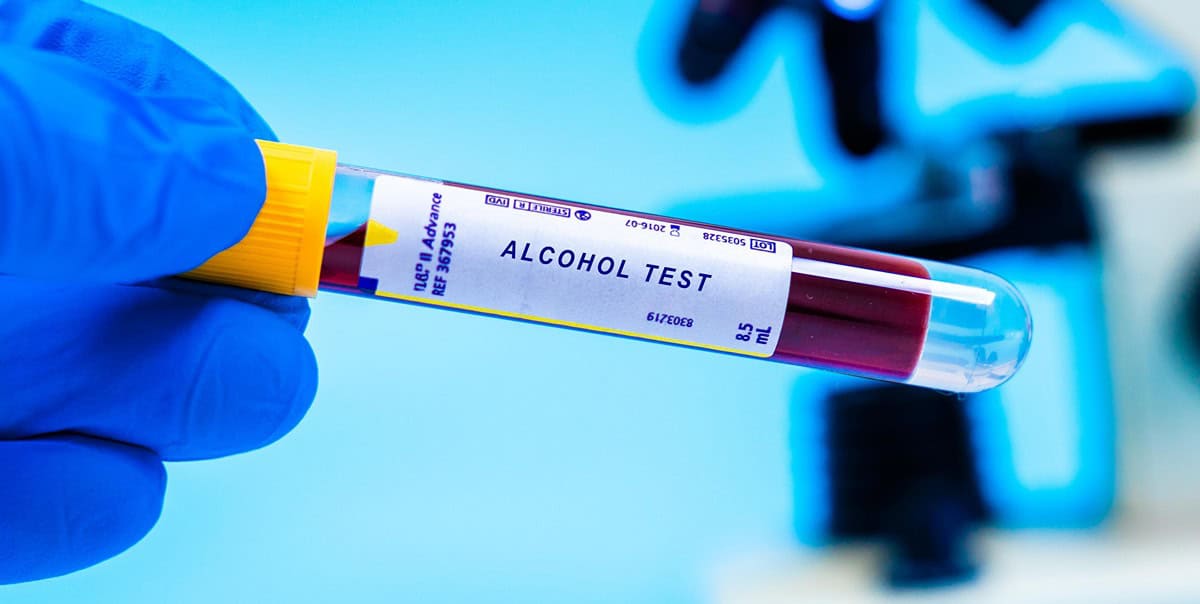Can Cold Medicine or a Prescription Drug Affect a Breathalyzer?
As an experienced DUI defense attorney, Arja often gets asked, “Can I get a DUI while on cold medicine or antibiotics?” The short answer is yes, you can.
Driving under the influence (DUI) isn’t just limited to the influence of alcohol; it also includes driving under the influence of medication or any other substance that harms your ability to drive safely.
While many people assume that over-the-counter cold medicine and prescription antibiotics are safe to take before getting behind the wheel, the reality is that these medicines can also impair your driving abilities.
In fact, according to the National Highway Traffic Safety Administration (NHTSA), approximately one-third of all DUI arrests involve drugs other than alcohol.
In this blog post, we’ll explore the science behind how cold medicine and antibiotics affect your driving ability, discuss whether prescription medications can lead to a DUI, and provide some helpful tips for anyone in this situation.
Topics covered in this article include:
- The Science Behind How Cold Medicine and Antibiotics Affect Your Ability to Drive
- Can Other Prescription Medications Lead to a DUI?
- Do I Need Proof of My Prescription?
- DUI Defenses to Driving While on Medication.
- Top 10 FAQs About Driving Under the Influence of OTC Cold Medicine and Prescription Antibiotics
- Consult with Your Defense Attorney at the Shah Law Firm

The Science Behind How Cold Medicine and Antibiotics Affect Your Ability to Drive
The science behind how cold medicine and antibiotics affect your driving ability is crucial to understand, especially if you’re facing a DUI charge.
Many medicines contain substances that can impact your cognitive and motor skills, leading to slower reaction times, decreased coordination, and poor decision-making abilities.
In some cases, these effects can even be worse than those caused by drinking alcohol. Let’s take a closer look at how cold medicine and antibiotics can affect your driving abilities.
Cold Medication – Prescription and Over-the-Counter (OTC)
Many (OTC) over-the-counter cold medicines contain antihistamines and decongestants, which can cause drowsiness, dizziness, and impaired judgment.
These symptoms can be particularly dangerous for drivers who must remain alert and focused on the road. Additionally, some medications contain alcohol, which can increase the effects of other medications and affect your ability to operate a vehicle safely.
They can also affect a breathalyzer reading, causing your BAC to test positive.
Some of the most popular brand names of over-the-counter (otc) cold medicines that can cause drowsiness and impaired judgment include:
- NyQuil
- Tylenol Cold & Flu
- Alka-Seltzer Plus Cold
- Robitussin
These medications contain antihistamines, decongestants, and cough suppressants that can cause dizziness, drowsiness, and decreased coordination.
Prescription Antibiotics
While antibiotics are typically prescribed to treat infections, some prescription medications can alter your driving abilities. For example, some antibiotics contain a stimulant called pseudoephedrine, which can cause restlessness, nervousness, and increased heart rate.
Some prescription antibiotics can also cause symptoms of impairment, such as drowsiness, nausea, and other symptoms that can affect your ability to operate a vehicle safely.
For example, Azithromycin, an antibiotic commonly prescribed to treat bacterial infections such as pneumonia and bronchitis, can cause dizziness, headaches, and blurred vision. Another example is Ciprofloxacin, a medicine used to treat urinary tract infections, which can cause drowsiness, confusion, and nervousness.
The severity of these medicines may affect you and can vary depending on the individual and the medication in question.
Some people may be more sensitive to the effects of medication than others, and some medications may be more likely to change your driving abilities than others.
Therefore, it’s always important to consult your doctor or pharmacist before taking any new medication, especially if you plan to drive or operate heavy machinery.
If you’re facing a DUI charge and believe that medication played a role, it’s essential to speak with an experienced DUI defense attorney who can help you understand your legal options and build a strong defense.
Can Other Prescription Medications Impair Driving and Lead to a DUI Arrest?
While cold or flu and antibiotics are common culprits for impaired driving, other prescription medications can also lead to a DUI charge.
In fact, any substance that impairs your ability to drive safely, including prescription drugs, can result in a DUI arrest.
Here’s what you need to know about prescriptions and DUIs
Stimulants: Prescription medications that contain stimulants, such as ADHD medications and weight loss drugs, can cause restlessness, nervousness, and increased heart rate. These symptoms can impair your driving abilities and make it difficult to concentrate on the road.
Examples of these include:
-
- Adderall
- Ritalin
Cause drowsiness: Many prescription medications, including antidepressants, antipsychotics, and muscle relaxants, can cause drowsiness and decreased coordination. These symptoms can be particularly dangerous for drivers who must remain alert and focused on the road.
Examples of these include:
-
- Zoloft,
- Paxil
- Seroquel
Affect the central nervous system: Prescriptions that affect the central nervous system, such as painkillers and anti-anxiety medications, can impair your cognitive and motor skills. These medications can cause dizziness, drowsiness, and poor judgment, making it difficult to operate a vehicle safely.
Examples of these include:
-
- Percocet
- Xanax
It’s important to note that these are just a few examples of prescription medications that can lead to a DUI charge.
Suppose you’re unsure whether a medication may cause impairment. In that case, it’s always best to consult your doctor or pharmacist before taking it, especially if you plan to drive or operate heavy machinery.
It’s also important to understand that mixing alcohol with medication can increase the severity of these symptoms and affect your ability to operate a vehicle safely.

Do I Need Proof of My Prescription if Pulled Over by Police?
If you’re pulled over by the police while taking prescription medication, you may wonder whether you need to provide proof of your prescription.
The answer is yes, you do.
Under Arizona law, if you’re in possession of a controlled substance and can’t provide proof of a valid prescription, you may be charged with a crime.
Here’s what you need to know:
- Arizona’s drug possession laws: In Arizona, it’s illegal to possess a controlled substance without a valid prescription. If the police pull you over and they find medication in your possession, you may be required to provide proof of a valid prescription. Failure to do so can result in criminal drug charges.
- Proof of prescription: If you’re pulled over and have medicine in your possession, it’s essential to provide proof of your prescription as soon as possible. This may include the original prescription bottle, a copy of the prescription from your doctor, or a letter from your doctor verifying your prescription. It’s also a good idea to keep your pills in the original prescription bottle with your name and dosage clearly labeled.
- Consequences of not providing proof of prescription: You may be charged with a crime if you cannot provide proof of your prescription. The specific charge will depend on the type of medication in question and the quantity you possess. In some cases, you may also face DUI charges if the medication impairs your ability to drive safely.
Under Arizona law, failure to provide proof of a valid prescription can result in criminal charges.
Suppose you’re facing criminal charges related to a prescription or DUI. In that case, speaking with an experienced DUI defense attorney who can help you understand your legal options and build a strong defense is essential.
6 DUI Defenses to Driving While on a Prescription Drug.
It’s important to understand that there are several defenses available to you.
With the help of an experienced DUI defense lawyer from the Shah Law Firm, you can build a strong defense to help you avoid the most severe consequences of a DUI conviction.
Here are some common defenses to driving while on any medications that can affect you:
- Lack of impairment: To be convicted of a DUI in Arizona, the prosecution must prove beyond all reasonable doubt that you were impaired while driving. If your medication didn’t impair your ability to drive safely, you might be able to argue that you weren’t driving while under the influence. In some cases, expert testimony may be necessary to establish that your medication didn’t affect your driving abilities.
- Lack of knowledge: If you were unaware that your medication could impair your driving abilities, you might be able to argue that you didn’t knowingly drive under the influence. However, it’s important to note that ignorance of the law is not a defense.
- Prescription defense: If you were taking pills that a doctor prescribed, you might be able to argue that you had a valid prescription and didn’t knowingly drive while under the influence. However, you must provide proof of your prescription and demonstrate that you were taking the medication as directed.
- Rising Blood Alcohol Concentration (BAC) defense: If you were stopped by the police shortly after taking medication and had a positive blood alcohol concentration (BAC) test, you may be able to argue that your BAC was still rising at the time of the test. This defense relies on the fact that alcohol takes time to absorb into the bloodstream and can take up to two hours to reach its peak level.
- Breathalyzer Accuracy: Breathalyzer tests can be notoriously inaccurate, particularly if you have medical conditions that can affect the results. Suppose you believe that the results of your breathalyzer test were inaccurate. In that case, you may be able to challenge the validity of the test and argue that your BAC test result was not actually above the legal limit.
- Miranda Rights: In some cases, the police may not have adequately informed you of your Miranda rights before administering a breathalyzer or blood test. If this is the case, evidence gathered from the test may not be admissible in court.
It’s important to note that these are just a few examples of DUI defenses related to the effects of these medications.
Every case is unique, and the specific defense strategy that’s right for you will depend on the specific circumstances of your case.
Suppose you’re facing a DUI charge related to medication. In that case, it’s important to speak with an experienced DUI defense attorney who can help you understand your legal options and build a strong defense.
Top 10 FAQs About Driving Under the Influence of OTC Cold Medicine and Prescription Antibiotics
1. Do I need proof of my prescription if pulled over by the police?
Yes, you do. Under Arizona law, if you’re in possession of a controlled substance and can’t provide proof of a valid prescription, you may be charged with a crime.
For example, if you were pulled over for a broken taillight and had Percocet in your possession but couldn’t provide proof of a prescription, you could be charged with drug possession.
2. Can other prescription medications lead to a DUI?
Yes, they can. Any substance that impairs your ability to drive safely, including prescription drugs, can result in a DUI arrest. For example, if you were pulled over for swerving and failed a sobriety test after taking Seroquel, you could be charged with DUI.
3. Can prescription medications be a DUI defense?
Yes, they can. Common DUI defenses related to medication include arguing lack of impairment, lack of knowledge, prescription defense, rising BAC defense, breathalyzer defense, and Miranda rights defense.
For example, if you were pulled over for speeding and failed a breathalyzer test after taking prescribed medication, but you can provide proof of a prescription and show that you weren’t impaired, you may be able to avoid a DUI conviction.
4. Can I be charged with DUI if I was using prescribed medical marijuana?
Yes, you can. While marijuana is legal in Arizona, it’s still illegal to drive while under the influence of marijuana. If you’re pulled over, and the police suspect you’re impaired, they may administer a sobriety test or blood test to determine your level of impairment.
For example: If you’re pulled over for speeding and the police smell marijuana in your car, they may ask you to perform a sobriety test or blood test to determine if you’re impaired. If the test shows you’re over the legal limit, you could be charged with DUI.
5. Can I be Charged with DUI if I’m taking a pharmaceutical drug for a Mental Health Condition?
Yes, you can. Any substance that impairs your ability to drive safely can lead to a DUI charge, including prescription medications used to treat mental health conditions such as depression or anxiety. If you’re taking medication for a mental health condition, it’s essential to be aware of the potential side effects and to avoid driving if you feel impaired.
For example: If you’re pulled over for running a red light and appear to be disoriented or confused, the police may administer a sobriety test or blood test to determine your level of impairment. If the test shows impairment, you could be charged with DUI.
6. Can I be charged with DUI if I’m using a nicotine patch?
No, you can’t. Nicotine patches don’t contain substances impairing your ability to drive safely, so you can’t be charged with DUI for using them.
7. Can I be charged with DUI if I’m using a prescription opioid?
Yes, you can. Opioids can cause drowsiness, dizziness, and impaired judgment, all of which can affect your ability to operate the motor vehicle safely.If you’re taking a prescription opioid, you must be aware of the potential side effects and avoid driving if you feel impaired.
For example: If you’re pulled over for swerving and appear to be drowsy or disoriented, the police may administer a sobriety test or blood test to determine your level of impairment. If the test shows impairment to the slightest degree, you could be charged with DUI.
8. Can I be charged with DUI if I’m using a prescription steroid?
It’s possible. While steroids don’t typically impair your driving ability, they can cause mood swings and aggressive behavior, which can be dangerous on the road.
If you’re taking a prescription steroid, you must be aware of the potential side effects and avoid driving if you feel impaired.
9. Can I be charged with DUI if I’m using an insulin pump?
The short answer is no, you can’t. Insulin pumps don’t contain any substances that impair your ability to drive safely, so you can’t be charged with DUI for using one. However, there have been cases where diabetes can affect a person’s blood sugar to the point where you may get a false BAC reading.
10. Can I be charged with DUI if I’m using a prescription drug that wasn’t prescribed to me?
Yes, you can. If you’re in possession of a controlled substance that wasn’t prescribed to you, you can be charged with drug possession. Additionally, if you’re impaired by a medication that wasn’t prescribed to you, you can be charged with DUI.
For example, if you take your friend’s Xanax before getting behind the wheel and are pulled over for swerving, you could be charged with drug possession as well as under the influence.
Consult with Your Defense Attorney at the Shah Law Firm

If you are arrested for DUI while on medication, you should first contact an experienced DUI defense attorney who can advise you on the best course of action.
It’s essential, to be honest with your attorney about any medications you’re taking and to provide them with copies of your prescriptions.
Your attorney may be able to build a defense based on whether you were taking medication as prescribed or that the medication didn’t impair your driving ability. Additionally, it’s important to avoid discussing the specifics of your case with anyone except your attorney, as anything you say could be used against you in court.
Ultimately, the best way to avoid a DUI charge related to prescription meds is to be aware of the potential side effects of any medication you’re taking and to avoid driving if you feel impaired.
With the right defense strategy, it may be possible to have your charges reduced or dismissed, allowing you to move on with your life without the burden of a criminal record.
Call the Shah Law Firm today at 602-560-7408 to begin building your defense with a free consultation.











